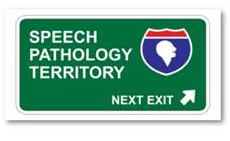SLP Corner: Common Core Teacher Rating Scales for your Language Evaluations
by Ruth Morgan, MS CCC-SLP
Reprinted with the express permission of the author as it appeared on the Chapel Hill Snippets blog

Let me start by saying that I work with a fabulous bright group of SLPs in the Chapel Hill–Carrboro City Schools. At least once a month we get together from across the school district and do so many necessary tasks:
- case studies
- discuss Medicaid rules and guidelines
- peer review for student evaluations
- talk about business (lots of this!)
- problem-solve (yes, we do encounter problems)
- attend continuing education
- exchange information
- celebrate weddings, retirements, babies
I feel so fortunate to be on such a team which is led by lead SLP, Beth Burns. Each year, she thinks of a few vital group projects for all of us to work on. One year, it was to develop a systematic way to implement RtI. Another year, it was to develop a system for a consistent peer review process to determine whether children who have been evaluated met North Carolina eligibility guidelines for speech/language services.
This year, our group project has been to develop teacher checklists that are aligned with the new Common Core. These checklists are to be completed as part of a child’s speech/language evaluation.
Why do we require teacher checklists in our school system?
For a child to receive speech services in a school setting, there must be evidence of impact of the communication impairment in the classroom setting. As part of an evaluation, I usually observe a child, and gather work samples, but as a group, we require teachers to fill out a checklist rating educational impact of the speech or language problems for each child undergoing an evaluation. With the new Common Core curriculum being implemented next year, we felt the checklists needed an overhaul for better alignment. It was a collaborative project and I can’t take credit for much, if any. The resulting checklists looked great, though, and I can’t wait to start using them. So far, we have developed language checklists for grades K-1, and for grades 2-3. The other grades are coming soon! I also have links to our pragmatic checklists. With all of these, there were a couple of minor formatting glitches after uploading to Google, mainly in the column headings–no big deal, in my opinion.
No need for you all to reinvent the wheel. Our lead, Beth Burns, gave the go ahead to share. Use with your kids in the evaluation process; but if you want to show the checklists in a conference or someplace where there is an audience, please give a shout out to the Chapel Hill–Carrboro speech pathologists! I’m humbled by my co-workers!
When more checklists become available, I’ll post them.
Click here for Teacher Checklist for Language k-1
Click here for Teacher Checklist for Language 2-3
Click here for Teacher Checklist for Language 4-12 (This was just added!)
Click here for Teacher Checklist for Pragmatic Language k-3
Click here for Teacher Checklist for Pragmatic Language 4-12
About the Author: Ruth Morgan is a speech-language pathologist who works for the Chapel Hill-Carrboro City Schools at Ephesus Elementary School. She loves her job and enjoys writing about innovative ways to use the iPad in therapy, gluten-free cooking, and geocaching adventures.
Please support our contributors and visit/subscribe to the Chapel Hill Snippets blog
PediaStaff is Hiring!
All JobsPediaStaff hires pediatric and school-based professionals nationwide for contract assignments of 2 to 12 months. We also help clinics, hospitals, schools, and home health agencies to find and hire these professionals directly. We work with Speech-Language Pathologists, Occupational and Physical Therapists, School Psychologists, and others in pediatric therapy and education.
